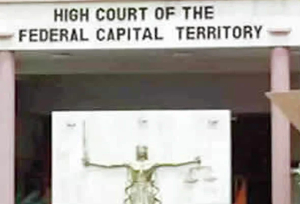Accra, July 20, GNA - A two-day EuroAfrica Information Communication Technology (ICT) awareness exchange workshop on Friday began in Accra with the outgoing Minister of Communications calling for the need to develop a strategy for technology commercialization and economic diversification.
Professor Mike Oquaye said this should be with a focus on exploring ways to encourage growth and productivity in value added sectors. "Encourage investment and research in knowledge-based industries, explore ways to encourage the growth of venture capital, develop centres of excellence in commercialization and work with industry to develop new markets for value-added product," he said.
In a speech read on his behalf Prof. Ocquaye said ICT, one of the world's strongest and fastest growing economic sectors, was vital to Africa's future and would play a key role in increasing wealth creation potentials with the view to reducing poverty among the populace, increasing education and the delivery of government services throughout the continent.
"It is because of this that Africa has to come together to network and share ideas as well as develop new partnerships in our drive to use medium of ICT to exchange information and services with citizens, businesses and other arms of government," he said. The outgoing minister noted that government of Ghana through nationwide consultations with stakeholders commenced the process to develop a national ICT for Accelerated Development policy as a blueprint to integrate ICT in national economic development planning. He said the policy documentation received unanimous adoption when it was presented to parliament in 2004 and had since been integrated into Ghana's Growth and Poverty Reduction Strategy. Professor Oquaye said one very key issue that featured prominently was research and development (R&D) and the government acknowledged that if Ghana was to make any progress in developing a high-tech export industry, a lot of efforts would be directed at investing more into R&D activities and initiatives and developing the nation's scientific and industrial research base.
He said various strategies were being adopted to promote and support R&D initiatives in industry, research institutions and universities to enhance Ghana's capacity to develop, manufacture and assemble ICT products and as well as services as a step towards developing a global competitive ICT services sector and industry. Prof. Oquaye noted that the adoption of ICTs created unprecedented opportunities for industries and businesses in developing countries to overcome constraints posed by limited access to resources and markets. "The technology park project to house and provide one stop-shop for ICT/IT enabled companies to enhance R&D is to be located at a free Zone enclave in Tema, the port city of Ghana."
Professor Oquaye said Ghana's global good standing continued to yield great results as such the United Nations confirmed in early 2006 its intention to establish two science and technology parks in Africa to stimulate IT, Science and Technology development.
Mr. Ken Lohento, EuroAfrica ICT Project Regional Coordinator, said the workshop would be about the 7th framework programme about the EuroAfrica-ICT activities and would favour exchange on EU-Africa scientific cooperation in the field of ICT.
EuroAfrica-ICT, also called START project, is an initiative supported by the European Union. It aims at supporting the development of a deeper and broader science and technology cooperation between the EU and sub-Saharan Africa in the ICT Sector.
An estimated 90 participants are expected from Ghana, Nigeria, Sierra Leone, the Gambia, Liberia and Europe.
It is organized by Panos Institute Africa, with the support of the Ghana-India Kofi Annan Centre of Excellence in ICT (AITI-KACE), the African Network Operators Group (AFNOG), Ghana.com and the EuroAfrica-ICT International team. 2
Business News of Friday, 20 July 2007
Source: GNA












